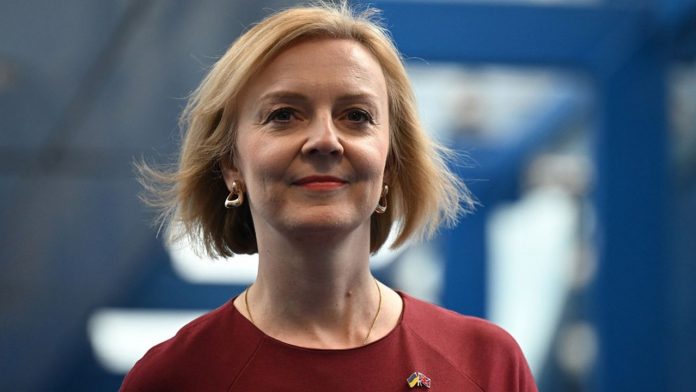Posted Oct 3, 2022, 5:56 PMUpdated on Oct 3, 2022 at 7:53 PM
On the political level, the decline of the British finance minister is significant and symbolic. On a purely budgetary level, it does not change the situation.
Announced on Monday, Kwasi Kwarteng’s decision to reverse the abolition of the top rate of income tax is welcome but it will not be enough to completely remove the pressure on UK public finances.
“still a lot of work”
Two figures make it possible to grasp the extent of what the government of Liz Truss still has to do. Ten days ago, the new executive across the Channel proposed to cut taxes by 45 billion pounds over the next four financial years. In the medium term, leaving the top marginal rate of income tax unchanged at 45% will bring £2 billion a year to the UK state.
For Paul Johnson, director of the Institute for Budgetary Studies (IFS), Kwasi Kwarteng’s gesture is “of limited budgetary importance”. This sum corresponds to “a rounding error in the current context of the country’s public finances”, he said in a press release. The minister “still has a lot of work to do if he wants to show a credible commitment to fiscal sustainability. Unless he reverses some of his other much larger tax announcements, he will have no choice but to consider cuts in public spending,” continued Paul Johnson. Which, moreover, has already begun, since the Chancellor of the Exchequer has indicated that certain public expenditures would not be revalued in line with inflation.
Nevertheless, the markets rather welcomed this U-turn. “Until now, the government gave the impression of continuing at all costs its policy of lowering taxes for the wealthiest. But under pressure from parliamentarians and investors, Kwazi Kwarteng did an about-face by canceling a highly symbolic measure. The market now expects a fiscal stance that is much less radical and less in opposition to the central bank’s efforts to contain inflation,” explains Fabrice Montagné, economist at Barclays. Clearly, as fiscal policy now seems a little less inflationary, the Bank of England should not raise its rates as much as expected.
The problems remain
But the problems of the British economy remain intact. First, as noted by the Resolution Foundation, a laboratory of economic ideas, the tax cuts still planned continue to favor the richest. A quarter of the Liz Truss government’s measures will benefit the top 5% of UK households. Then, the public deficit will widen over time. According to the foundation’s calculations, made before Monday’s announcement, the public deficit would increase by 2.3 points of GDP, or 67 billion pounds, in 2026 compared to a deficit of 1.4% of GDP expected in last March by the OBR, the equivalent of the Court of Auditors on the other side of the Channel.
Speaking in Birmingham on Monday to activists from the Conservative Party, Kwasi Kwarteng nevertheless assured that the public debt as a percentage of GDP “will drop in the medium term” and that he believed “in budgetary discipline”. Another promise: reforms will be launched and will make it possible to increase the country’s potential growth to 2.5% per year. Without specifying which ones but insisting on the necessary liberalization of economic sectors and the need for deregulation. Yet the UK is already one of the least regulated developed economies today.
How to react effectively to changes?
Economic uncertainties, political tensions, global warming, changing businesses and industries… The world is changing. How to decipher weak signals, anticipate and best adapt? The “Echos” editorial staff, with its 200 specialized journalists, provides you with strategic thinking tools every day to understand our environment and deal with changes. Through our analyses, surveys, chronicles and editorials, we support our subscribers to help them make the best decisions.













